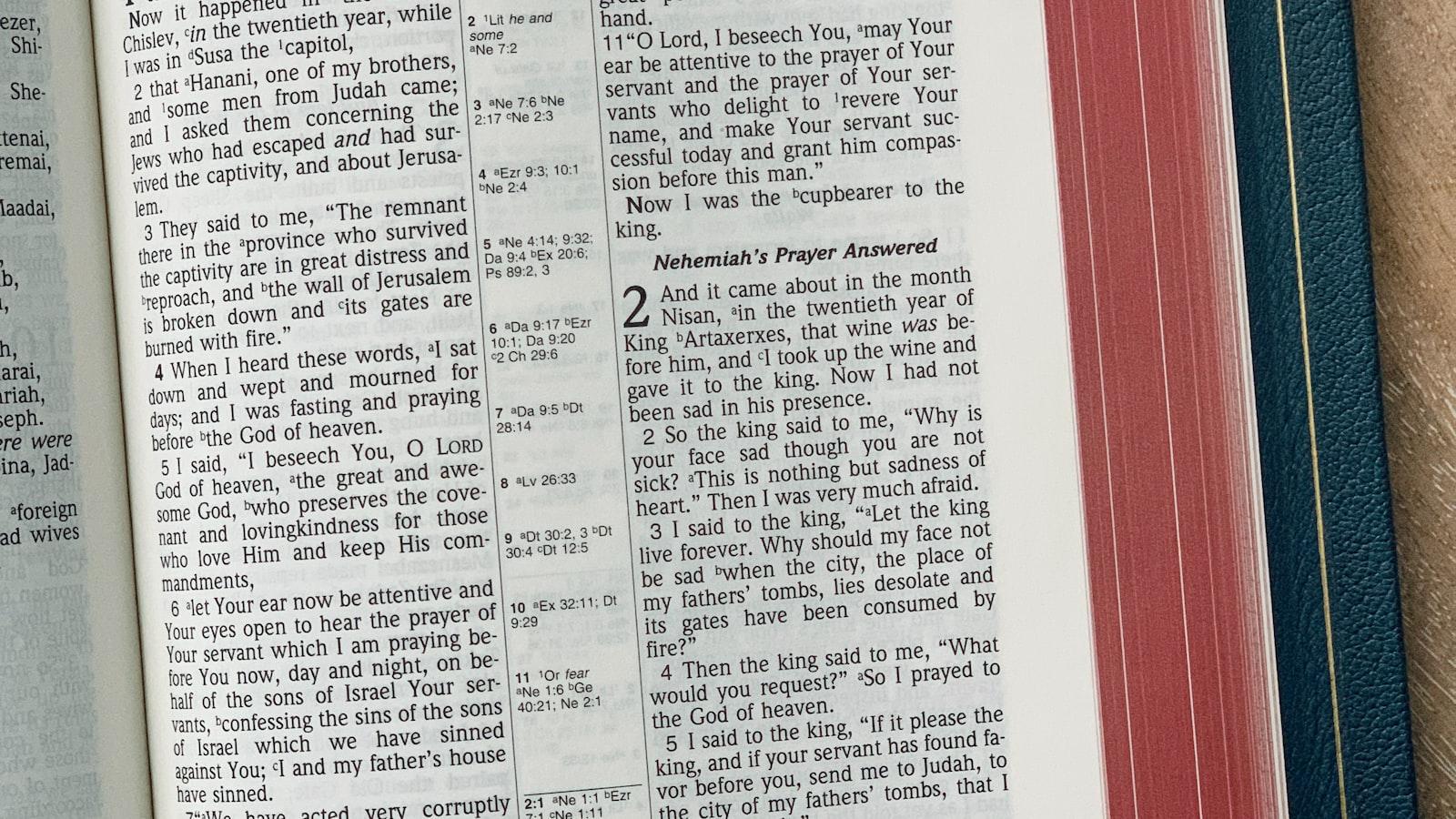So, my friend, have you ever wondered about the biblical meaning of ’Lord’? Well, buckle up because we’re about to embark on a fascinating journey through the pages of scripture to uncover the true essence of this term. In this article, we’ll dive deep into its significance and explore the multifaceted ways ‘Lord’ is used to refer to God in the Bible. Get ready to expand your understanding and connect with the ancient wisdom that lies within these sacred texts. Shall we commence our exploration together, my curious companion?
The Meaning of Lord in the Bible
The term “Lord” appears numerous times throughout the Bible, and its meaning varies depending on the context. In the Old Testament, it is often used to refer to God, the supreme being and creator of the universe. It highlights his authority, power, and sovereignty over all things.
Another significant use of “Lord” in the Bible is in reference to Jesus Christ, who is often called ”Lord” by his followers. This title emphasizes his role as the Messiah, the Son of God, and the Lord of all creation. It signifies his divinity, his lordship over humanity, and his sacrificial death and resurrection for the salvation of mankind.
Furthermore, “Lord” can also refer to human rulers or figures of authority. In these instances, it represents their position of power and the respect and allegiance owed to them by their subjects. The concept of lordship in the Bible extends beyond mere leadership to encompass responsibility, guidance, and protection of those under their care.
Ultimately, the biblical meaning of “Lord” encompasses both the divine and human aspects of authority and power. It represents God’s sovereignty over all creation, Jesus Christ’s lordship over believers, and the responsibilities and expectations that come with positions of leadership and authority.

Exploring the Title Lord in Biblical Context
When exploring the title "Lord" in a biblical context, it is important to consider the significance and various connotations associated with this title. In the Bible, the term "Lord" is used to refer to God, Jesus Christ, and even earthly authorities. Let’s delve deeper into the biblical meaning of "Lord" and uncover its rich symbolism.
1. God as the Ultimate Lord:
In the Bible, “Lord” is often used to refer to God as the ultimate authority and ruler over all creation. As Christians, we acknowledge God as our Creator and reverently address Him as ”Lord.” This divine title signifies His sovereignty, power, and dominion over everything that exists.
2. Jesus Christ as Lord and Savior:
Another important aspect of the biblical meaning of “Lord” is its association with Jesus Christ. In the New Testament, Jesus is referred to as “Lord” numerous times, emphasizing His divine nature and authority. Christians recognize Jesus as their Lord and Savior, believing in His sacrifice for the forgiveness of sins and His resurrection.
3. Earthly Authorities as Lords:
Besides its spiritual significance, the term “Lord” is also used to refer to earthly authorities such as kings, rulers, or masters. In biblical times, these individuals held significant power and were considered lords over their subjects. However, their authority was considered subordinate to the ultimate lordship of God.
4. The Respectful Address:
Furthermore, “Lord” is often used as a respectful address in prayer and worship. By addressing God or Jesus as “Lord,” we acknowledge their divine authority and express our reverence and submission to them. This humble submission is a central theme in biblical teachings, encouraging believers to surrender their lives to the will of the Lord.
Understanding the biblical meaning of ”Lord” helps us grasp the depth of its significance in both spiritual and worldly contexts. As we explore the scriptures and delve into the multifaceted implications of this title, we gain a more profound understanding of the relationship between God, Jesus Christ, and ourselves as believers.

Understand the Significance of Lord in the Scriptures
In the Holy Scriptures, the significance of the Lord transcends mere human understanding. The biblical meaning of “Lord” carries immense weight, representing not only divine authority but also God’s sovereignty and dominion over all creation. Studying the Lord’s presence in the Scriptures enlightens us about His character, His relationship with His people, and His plan for humanity’s salvation.
The Lord as the Almighty Ruler
In the Bible, the title “Lord” is often used to acknowledge God as the supreme ruler of the universe. It reflects His limitless power and authority. The Lord’s sovereignty is demonstrated through His creation, His commandments, and His miraculous interventions throughout history. Understanding the significance of the Lord’s authority helps us recognize His ultimate governance over our lives and enables us to submit to His divine will.
The Lord’s Covenant and Redemption
Another crucial aspect of the biblical meaning of “Lord” is its representation of God’s covenantal relationship with His people. Throughout the Old Testament, the Lord established numerous covenants, promising His love, protection, and guidance to those who follow Him faithfully. These covenants provide a framework for understanding the Lord’s unwavering commitment to His creation, culminating in the ultimate redemption through Jesus Christ in the New Testament.
The Lord’s Guidance and Provision
The Lord’s guidance and provision are evident in the Scriptures, showing His deep care for His children. As believers, we can trust in the Lord’s promise to lead us on the path of righteousness and supply our needs. His wisdom and discernment surpass human understanding, making His guidance invaluable in making life’s decisions. As we fully rely on the Lord’s provision, we experience His faithfulness and witness His blessings unfold in our lives.
Our Response to the Lord
Understanding the significance of the Lord in the Scriptures requires an appropriate response. As we delve deeper into His character, His authority, and His love, our hearts should be filled with reverence, awe, and gratitude. Recognizing the Lord’s divine presence in our lives requires us to surrender our will to His, seeking His guidance, obeying His commandments, and embracing His redemptive plan through faith in Jesus Christ. May we always strive to honor and glorify the Lord in all aspects of our lives.

Unveiling the Biblical Interpretation of Lord
When exploring the biblical meaning of “Lord,” it is essential to delve into its multifaceted interpretations that are deeply rooted in religious and historical contexts. In Christianity, the term “Lord” is frequently used to refer to Jesus Christ, emphasizing His divinity, authority, and role as the Savior. Acknowledging Jesus as Lord represents a belief in His supreme power and the acceptance of His teachings as the ultimate truth.
Beyond Jesus, the term “Lord” can also refer to God, the Almighty Creator, in various instances throughout the Bible. In the Hebrew Scriptures, the word “Lord” commonly translates the sacred name of God, Yahweh, denoting His sovereignty, existence, and benevolence towards His creation. It signifies a personal relationship with the Divine, highlighting God’s involvement in the lives of His people and their obedience to His commands.
Moreover, examining the biblical interpretation of “Lord” reveals its association with titles that further exemplify different aspects of God’s divine nature. For instance, “Lord of Hosts” emphasizes God’s role as the leader of angelic forces, symbolizing His strength, protection, and power. “Lord of Lords” accentuates God’s ultimate authority over all rulers and kings, establishing His unmatched supremacy.
Understanding the biblical meaning of “Lord” requires recognizing its implications in our daily lives. It calls for a deep reverence, trust, and obedience to God, aligning our actions and choices with His divine will. Embracing the Lordship of Jesus in our lives signifies surrendering our selfish desires and placing our faith in Him, seeking His guidance, and following His teachings to live a life of purpose, love, and righteousness.
So there you have it, folks! We’ve delved into the fascinating topic of the biblical meaning of “Lord.” Hopefully, you’ve gained a better understanding of the rich and complex connotations associated with this important term. From examining its various translations and historical context to exploring the different ways it is used throughout the Bible, it’s clear that the word “Lord” holds significant symbolic and theological value. Whether you interpret it as a title of honor, a divine ruler, or a representation of supreme authority, it serves as a cornerstone in religious discourse and worship. Understanding the biblical meaning of “Lord” helps us grasp the profound relationship between humanity and the divine, shedding light on the belief systems that have shaped our history and culture. So the next time you encounter this word in the Bible or in religious discussions, remember the multifaceted nature of its meaning and reflect upon its spiritual significance.
